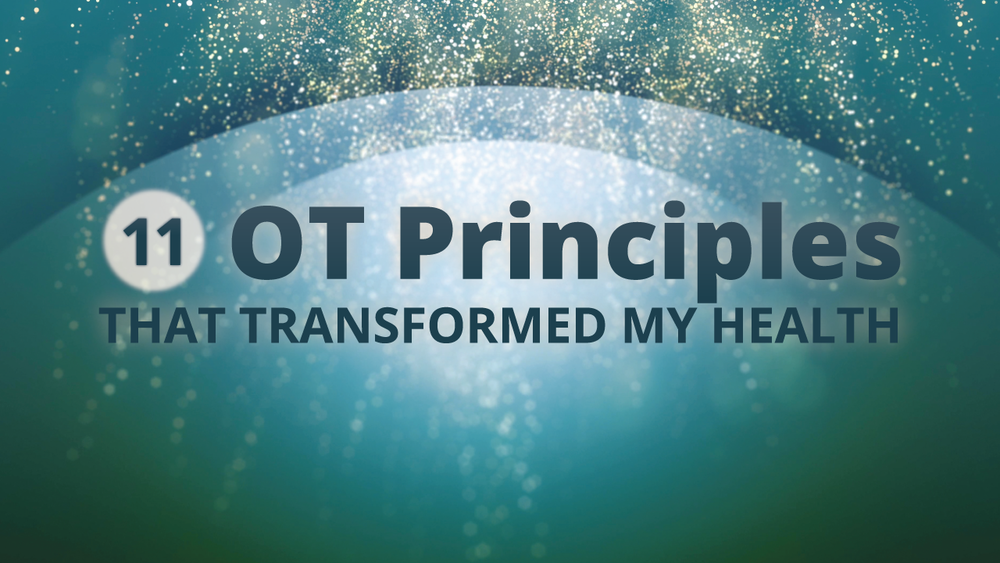
Most of us were drawn to the occupational therapy profession because we saw the potential to make a difference in others’ lives.
We saw the opportunity to help those in need reclaim their independence and take charge of their health, so we invested time, energy, and hard-earned money to join the ranks of OT professionals.
But the day-to-day grind can wear on us.
Hectic days scrambling around in a broken healthcare system, trying to achieve productivity standards and maintain patient satisfaction can take their toll.
It’s easy to start feeling like you don’t have much to offer, after all.
Despite this, I’m happy to say that I feel more confident than ever in the health principles I have learned as an occupational therapist.
In tackling my own health challenges, I found myself turning again and again to these OT principles for inspiration and comfort.
I can’t imagine where my health would be without them.
(Please note, these are my personal principles from delivering and experiencing occupational therapy. If you are interested in the core ethical principles of OT, put forth by the AOTA, please read this ethics post.)
1) You have agency over your health
The core principle of occupational therapy is that you have the power to influence your own well-being.
Does this mean we can control every diagnosis and lab test result? Heck no!
What it does mean is that, regardless of your situation, there are steps you can take to make sure you are prioritizing what matters to you. There are always things you can do to influence your quality of life, and continue living a lifestyle that reflects your values. (I highly recommend the book “Being Mortal: Medicine and What Matters in the End” for further reading on this topic.)
I had been experiencing dizziness every day for six months, and had been waiting on endless tests and consults with specialists, before I remembered this core principle.
When I decided to focus on what I could do for my health instead of waiting on the next specialist, the tide slowly began to turn. Through experimentation, I was able to find little things that improved my days, all of which ended up being clues toward ultimately finding a diagnosis.
When I decided to take my health into my own hands, everything started to change for me.
2) Heal by doing what you love
Another core tenet of occupational therapy is that a hallmark of health is simply being able to participate in the daily activities that are important to you.
Getting back to doing what you love is a crucial part of the healing process.
For me, I always figured out how to continue doing activities that mean the most to me: spending quality time with my children and participating in our community garden. Not only did these give me a major emotional boost, but I believe they helped me from becoming completely deconditioned.
3) You are the hero of your story; healthcare practitioners are guides
Every good story features someone who serves as a guide or a mentor—someone who delivers much-needed instruction and encouragement, and sometimes even performs small miracles on your behalf.
Another turning point for me was the moment when I found a physician assistant (PA) who was empathetic to my situation—someone who truly believed I could feel better.
In a fragmented and confusing healthcare system, I needed her to help me synthesize all of the information I had received from various specialists.
4) Make everything that is important measurable
“Perceptual”
“Subjective”
“Women’s issues”
These were the phrases I kept hearing from specialists, which essentially amounted to code for: “We don’t see your issue on our tests; therefore we can’t help.”
Luckily, about nine months in, I was able to really dial in on the effect that my heart rate and blood pressure had on my dizziness. I started tracking both metrics like mad, and doing so helped me unearth the true source of my symptoms.
And, by measuring these metrics, I was able to find a sense of understanding and agency over my own well-being for the first time in nearly a year.
5) Technology is there to assist you (and it’s always getting better)
Most OTs like to geek out on leveraging tech to help improve clients’ lives; we call this assistive technology.
Luckily, we live in a true information age, and newer and more refined technologies keep coming to the market, allowing us to measure what matters—and adapt to challenges accordingly.
Once I found that tracking my heart rate was key to understanding and managing my symptoms, I invested in an Apple Watch. While there are many devices that help you monitor your heart rate, I loved that the Apple Watch provided the opportunity to use Cardiogram, which amalgamates the relevant readings into digestible charts. I can then compare each chart as desired, and show my doctors the results as needed.
6) Learn what you can about your condition
We cannot expect doctors to hold every detail about every diagnosis in their heads—nor can they realistically take the time to explain the pathology to us to the extent that we want.
It’s simply not possible.
That’s why it’s essential to do your own research to fully understand your own condition.
Even after I had identified a diagnosis and received the proper medication, I didn’t truly start to feel better until I found a research study about a related condition. And this study provided very specific steps that a group of similar patients had followed in order to feel better. This, in turn, helped empower me to take similar steps to feel better, too.
7) There is much we still don’t know about the human body
Rehabilitation therapists generally work with patients who are facing long recovery journeys; our clients frequently must learn to participate in life again after profound health challenges.
For this reason, we OTs typically don’t work with patients who enjoy the “quick fixes” that medicine has to offer those who have, say, strep throat.
Instead, those of us who practice occupational therapy are reminded daily that there is still quite a bit about the human body, disease, and the healing process that remains a mystery.
Although this seems like bad news at first, those of us in rehab know there is a silver lining: our bodies can surprise us with their resilience. For those of us with chronic conditions, a trip to the doctor rarely holds a silver bullet.
But, by taking little steps day after day, our bodies do often show a mysterious power to heal and adapt.
8) Healing is non-linear
Something that makes occupational therapists unique is our training in mental health. And, one of the most helpful models from our mental health training is the Recovery Model.
Among the Recovery Model principles, the one that has always struck a chord with me is that healing is non-linear, meaning it doesn’t move in a straight line.
Even when you are on a path of improvement, there are almost always setbacks.
I had my worst days when I knew what was wrong with me, tried my first medication to correct it, and it completely failed. It was so frustrating to realize that I wouldn’t have a quick fix.
Setbacks can be profoundly discouraging if we don’t keep reminding ourselves of the non-linear path to recovery. But, when we keep that principle at the top of our minds, it’s much easier to remember that a setback doesn’t mean we aren’t on the right path. In fact, it might mean that we are right where we need to be in the healing process.
9) Leverage your environment
Our clients can sometimes become confused when we OTs start asking lots of questions about their home environments: they wonder why we aren’t just running tests and then telling them what to do.
But, that’s because we recognize how powerful an effect our environments can have on our health and well-being, not to mention our overall safety.
If you want to geek out on this topic, I highly recommend exploring the concept of Blue Zones.
The main premise is this: relying on our individual will to make health changes is unrealistic, and quite frankly, failing us a society. However, when we alter our environments to nudge us toward healthier choices, the results are remarkable.
10) Embrace your community—and let it embrace you
Nobody will dispute the concept that it takes a village to raise a child. Even the strongest, most independent single parents rely on daycare and the support of friends and family to help out as needed.
The same goes for us adults. When we isolate ourselves because we’re unwell, we are robbing ourselves of the much-needed healing power of community.
A huge thank you to my husband, who went through crazy diet changes with me, to my friends who drank tea with me when alcohol was the social norm, and to everyone who has driven me places this year, when I couldn’t drive myself!
11) Be kind to yourself
It’s all too easy to beat ourselves up when our health is not where we want it to be.
We can easily start to indulge in negative self-talk, calling ourselves old, weak, decrepit, or even lazy. But that barrage of self-flagellation can be extremely destructive to our sense of worth if we’re not careful.
The reality is that most people have—or have had in the past—some sort of health struggle that they’re not necessarily showing to the world.
OTs are known for kindness and empathy, and this past year has shown me just how important it is to impart kindness and empathy to myself in the times that I need it the most.
Conclusion
We all have our own health battles we are fighting—or will be fighting at some point. Although it’s difficult to compare any individual situations, I hope you find at least a few of these principles comforting if you face your own health struggles.
The 11 tenets discussed above are the most profound OT principles that I have leveraged as clinician, and for my own health.

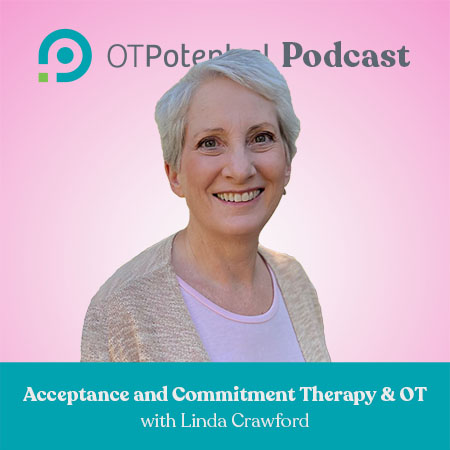
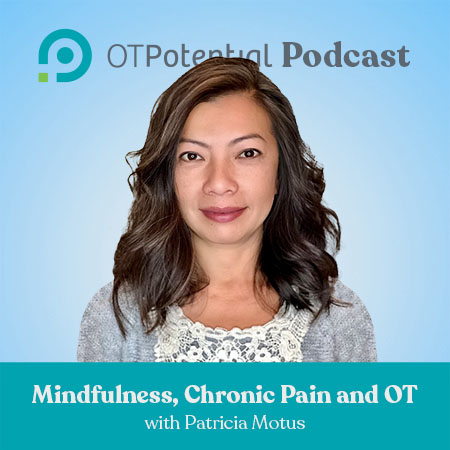
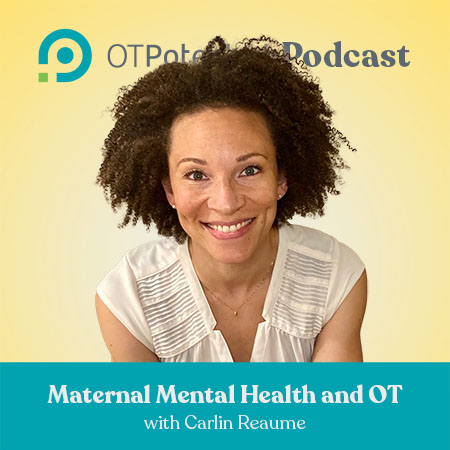
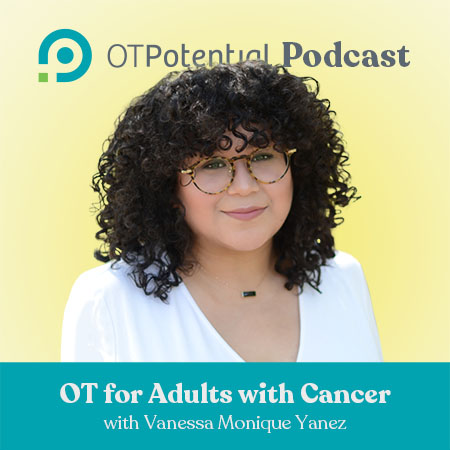
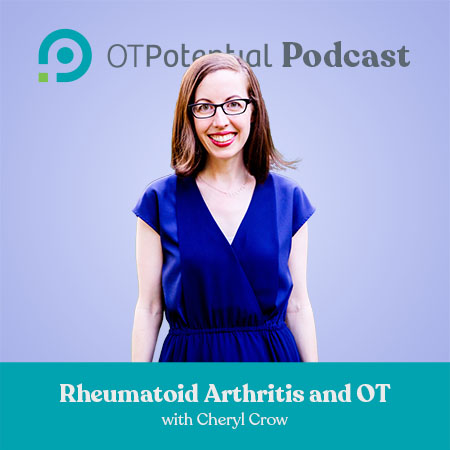
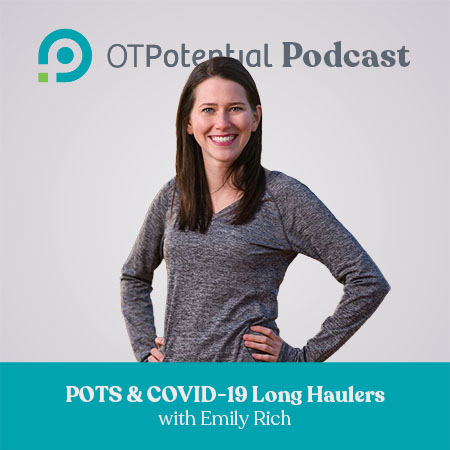
14 replies on “OT Principles That Transformed My Health”
Applying OT to my life is the only thing that enables me to function. I was diagnosed with M.E. towards the end of my 3rd year of studying to become an OT. I agree with most of what you say. Community and support are the hardest for someone with M.E. Most people have no idea what the condition is, hence the community is not very willing to offer support. It’s a very debilitating and isolating condition.
I’m busy editing the manuscript I wrote in 2001. It’s a lot of work and not easy to go through. Thanks for reminding me that perhaps sharing our stories can help others.
Hi Shoshanah! I’m excited that you are editing your manuscript; you definitely have an important story to tell.
So poignant, inspirational, and powerful, Sarah! I want to share this with everyone I know- therapists, patients, friends, family, non-OT practitioners, colleagues. This is truly one of the most powerful articles I have come across in the way that it touches on the truly salient aspects of health/illness/disease.
Thank you!
That means a lot Leah! Of course, a lot of credit goes to Meredith Castin and her incredible copy-editing skills!
Thank you, Sarah! I, too, look for ways to share my OT-personality using a lesson I learned in school: Therapeutic Use of Self, to respectfully share your own relevant stories to assure people “you are not alone (YANA)”.
Recently, I am really listening to my heart intuition to connect with others’ true needs, which generally lie below the surface of a multitude of symptoms. This resource below offers a scientific angle on the importance of Heart.
https://www.heartmath.com/institute-of-heartmath/
I wish you continued peace,
Kelli OTR/L
Hi Kelly! Thank you so much for sharing this resource. It is new to me and I look forward to exploring it! My empathy for people navigating our healthcare system has definitely skyrocketed over the past year.
Hi Sarah,
I read your reflections with tears streaming down my face. Your words resonated deeply with me as I have been battling numerous health conditions this past year, one of which includes debilitating dizziness that’s forced me to take time off from doing many of things that I once enjoyed. I have felt and experienced many of the things you described, and in the end, found myself going back to the philosophy of OT to find solace when the healthcare system failed to ameliorate my condition. Thank you for this very important reminder and beautiful reflection. You are such a bright light in our profession and I appreciate your heart and passion that goes into making OT potential one of the most valuable websites that serves OT students and practitioners. I will be keeping you and your family in my prayers and thoughts. May this upcoming year bring you great joy, healing, peace and a sense of wonder at all the beauty that life has to offer. Love, Miri
I am so thankful that we both found the profession of OT. I should write another post on the topic of how personally transforming it is to be part of such a supportive professional community.
I am praying for you right now that you find healing during the crazy newborn stage. I’m eager to hear sometime whether your dizziness has let up at all and how that is interplayed with your pregnancy and post-partum stage.
Unrelated to this post: I saw in one of your social posts that mortality has been heavy on your mind. I’ve never talked to anyone else who experienced this, but after the birth of both my boys I felt like I had to come to terms with my own mortality and theirs. It was so strong it almost felt like a hormonal compulsion. May you also find peace and healing this year, friend! Love, Sarah
Very interesting reading! I was diagnosed 8 years ago now of a very rare disease called Aplastic Anaemia (Total Bone marrow failure) of which the only cure is a bone marrow transplant. At the ripe age of 50 this was not an option, mainly due to age and secondly no match on register. Therefore I faced a long hard battle of rabbit serum (called Anti-thymu-globulin ATG for short) which is slowly infused into my body which has had all its immune system depleted, no nutrafils, no white cells nothing) upshot, its a very serious and scary treatment. But thankfully my OT’ness kicked in, I thought of all the things I had learned along the way, and decided to introduce some meaning into my existence in an isolation room on a haematology ward…. So I offered to do my own fluid charts, make my bed with the help of a member of staff, take other patients for walks around the floor (with my mask on), I was allowed to decorate my room with pictures I had coloured, the staff watched DVD’s with me when they had a quiet moment, I sprinkled lavender oil around my bed so my room smelt better. I would often hear the staff on their ward rounds, saying, thats Karen in there, she is an Occupational Therapist, you will be able to tell when you go in her room! then one day giving some informal supervision to the registrar (well she was younger than me) I was able to explain to her the importance of wellbeing! despite a life threatening disease, and the ever presence of contracting even the common cold that would kill me, I had achieved a sense of wellbeing, I may not have had control of the my illness but I had control of the environment in which I found myself. Had I not been an OT I am not sure I would have known where to start – but moving on, and I have now been in full remission for 2 years I do share a little with my clients. Especially when they feel that nobody knows how they feel to be scared, lost, etc. I don’t tell them everything, but I do use therapeutic use of self, to say, take back some control, surround yourself with things that mean something to you, look each day in the eye and be thankful that today you will enjoy being alive and allow yourself the odd bad day, but say to yourself, just one bad day, tomorrow will be a better day, and plan how you can make this so.
Wow, Karen thank you so much for sharing your story and your wisdom. I’ve read your post several time since yesterday and am in awe of how you were able to use your OT knowledge in such a challenging circumstance – and even be a help to others in this time. I know your story is one that I will come back to again and again for inspiration. Thank you.
Hi Sarah,
Although this is an older article, I happened to have read this at a perfect time in my life. I have been going through a random series of health issues over the last several months and am happy to report that I am finally feeling back to my old self. Its unfortunate that I was also dismissed by my doctors since labs looked great, but I learned to really listen to what my body needed and was trying to tell me. Thanks for sharing your journey and an easy applicable way to take on our health in our own hands.
Hey Monica!
I am so glad to hear that you are feeling better and that you were able to listen to your body through a challenging time. I am so thankful that I became an OT for many reasons, but not least among them for how much the OT tools I’ve learned have helped me navigate my own life!
HI Sarah, Thanks for sharing your story about your health challenges with POTS in a recent email yesterday. It prompted me to explore the OTPotential website and come across this article. As a fellow OT with POTs and other related health concerns it was nice to be able to relate to your experience and those who have also shared below. Thank you for your commitment to the OT profession through this website and for putting yourself out there through therapeutic use of self. I wish you continued success and health. Michelle
I’m a new OT club subscriber and spending some time looking back at your older blog posts. I really appreciate the lovely way you expressed your guiding OT principles and am in complete agreement. I too have struggled with chronic dizziness beginning in 2022 (PPPD) and found a great resource in the You Tube Channel “The Steady Coach” with Dr. Yonit Arthur that educates folks with some difficult “dizziness” diagnoses utilizing these same principles. I’ve also found these principles so helpful with other issues – back pain, foot pain, etc that require me to continue living my life while also being curious and creative in finding resources and experimenting with “what works for me” to address the acute issue as well as being proactive in diet, movement, exercise, mindfulness to prevent future issues. Looking forward to exploring the site more and discovering what other gems you have for us!